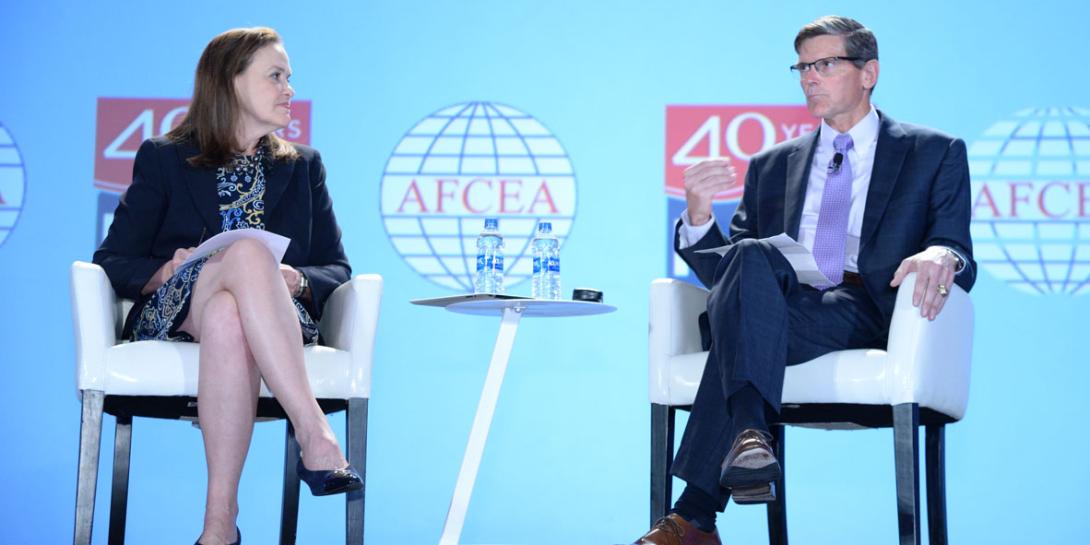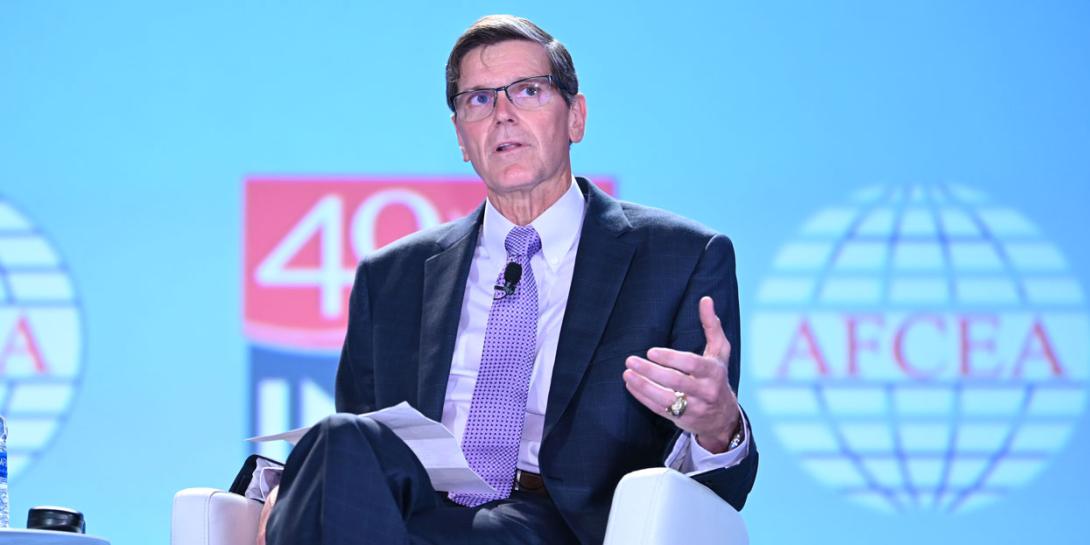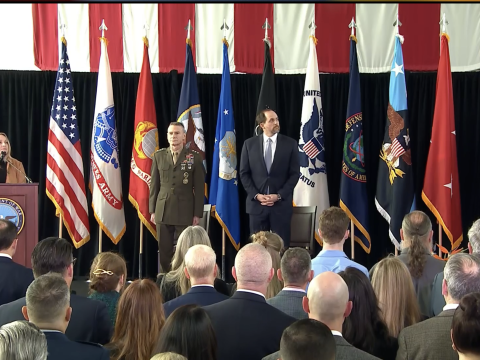Competition Is the Name of the Game in Global Security
Better information exchange, improved analysis and innovative technologies to keep up with adversaries will be essential if the intelligence community is to serve U.S. national security interests effectively in the coming years, stated experts at the opening session of the AFCEA/INSA Intelligence & National Security Summit on Wednesday, September 4.
Gen. Joseph Votel, USA (Ret.), former Special Operations Command (SOCOM) and Central Command (CENTCOM) commander, addressed several key points that define the challenges facing the intelligence community. The competition with Russia and China is preeminent among global uncertainties, and the United States must adjust to the changing environment.
“The great power competition [with China and Russia] is about influence, ideas and technology,” Gen. Votel stated. “We have to understand how [competitors] are changing traditional relationships that we have relied on in the past. And, we need to understand the nature of the relationship between China and Russia.
The great power competition [with China and Russia] is about influence, ideas and technology.—Gen. Joseph Votel, USA (Ret.), former SOCOM and CENTCOM commander #IntelSummit19
— Bob Ackerman (@rkackerman) September 4, 2019
“We should be very concerned about Russian capabilities,” he continued. “We should never make any assumptions about our objectives being aligned.”
The general cited the importance of human intelligence in the face of increased technological reliance, and he supported the drive for better analysis. “We picked up a lot of information on the battlefield in Iraq and Syria from ISIS. We must be able to analyze that,” he stated.
Across the national security community, technology is viewed as the key to maintaining superiority in the face of urgent global challenges. Gen. Votel called for a dedicated drive to developing and supplying innovative technologies to warfighters and intelligence professionals, and these technologies must come from across the national research spectrum.
There has to be significant investment and prioritization in critical technologies. It can’t just be on the private side, and it can’t just be government; it has to be a partnership.—Gen. Joseph Votel, USA (Ret.), former SOCOM and CENTCOM commander #IntelSummit19
— Bob Ackerman (@rkackerman) September 4, 2019
“There has to be significant investment and prioritization in critical technologies,” he declared. “It can’t just be on the private side, and it can’t just be government; it has to be a partnership.”
And, outreach toward friendly nations must improve. The United States must be more forward about sharing intelligence beyond traditional allies, the general offered.
“We have equally excellent partners outside the Five Eyes partnership. We have to look at how we open up the sharing of information,” he said.




Comments